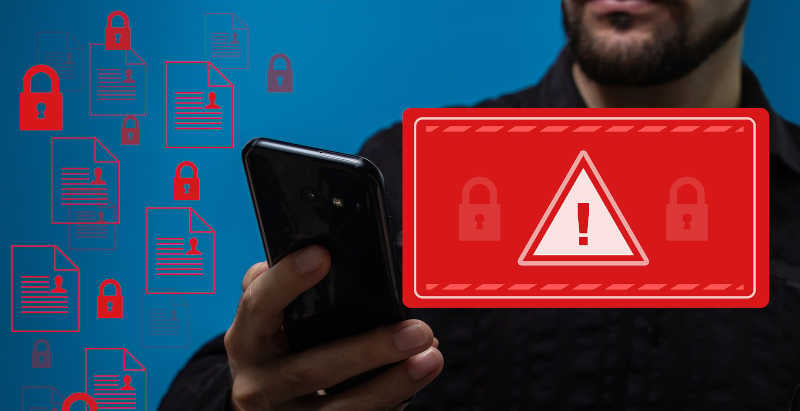Similar to legal malpractice suits, uncovered medi...
A Cyber Liability Guide for Your Business
 When the topic of data breaches arises, most people immediately think of it happening to large technology firms, big credit bureaus, or well-known retailers. However, it’s a fallacy that only large tech companies or big businesses experience this kind of event.
When the topic of data breaches arises, most people immediately think of it happening to large technology firms, big credit bureaus, or well-known retailers. However, it’s a fallacy that only large tech companies or big businesses experience this kind of event.
According to the Department of Homeland Security, cybercriminals target small businesses the most. This is because many small enterprises lack efficient tools for risk control. Data breach statistics show the global average data breach cost is $3.86 million.
If you have ever considered protecting your business from cyberattacks, you have heard of “Data Breach Insurance” and “Cyber Liability Insurance.” Since these terms are often used interchangeably, many tend to confuse the two.
Yes. Simply put, cyber liability insurance covers financial losses from a breach and also provides legal protection. Data breach insurance usually only protects your own financial interest.
Let’s take a deeper look at each type of coverage to understand the differences between the two.
For losses resulting from a data breach, hack, or theft of corporate records, data breach insurance only provides first-party coverage. The policies typically pay for the costs of notifying parties affected by a breach to lessen the harm. This involves giving affected parties access to resources, including helplines and credit monitoring.
California has strict laws regarding data breaches. In 2003, the Notice of Security Breach Act was adopted in California. According to this law, any business that maintains Californians’ personal data, and has a data breach, is required to report the incident in full.
If your business suffers a breach, data breach coverage may assist in covering:
Cyber liability insurance offers financial protection against losses brought on by cyberattacks or other tech-related dangers. Cybercriminals can leak, delete, or keep data hostage during a cyberattack. Your ability to react to the assault and minimize the impact of the loss will be aided by cyber liability insurance.
Businesses that have experienced a cyberattack can benefit from the help of cyber liability insurance. Typically, it is a separate policy with first-party and third-party coverages. Cyber liability typically covers:
Both cyber liability and data breach insurance have coverage exclusions which include:
If your business handles any of the following, you need cyber liability insurance:
You are exposed if you have access to any of the aforementioned data. The exposure comes from more than simply hackers breaking into computer systems. Laptops, smartphones, and portable memory devices that are misplaced, abandoned, or stolen are a common source of breaches, as are actions taken by irate employees and procedural mistakes.

It is critical to understand two major channels that criminals frequently use: email and employee errors. Ninety-four percent of malware is sent by email, according to reports, and at least 37% of breaches can be attributed to human mistakes.
A good cyber insurance partner will have the procedures and resources necessary to assess your present vulnerabilities, provide frequent reports, and provide detailed recommendations for reducing your risk.
Understand that your general liability insurance will not cover your cyber risk. It’s important to have a complete review of your commercial insurance program to allow you to design the right coverage for your business.
Get educated regarding your possible cyber risks and establishing internal controls.
Risks can include phishing attacks, data breaches, malware attaches, and much more. A cyber security firm can help you establish internal controls to limit these risks. These are examples of risk controls that your business might consider:
Make sure your agent provides up-to-date information regarding additional services your cyber insurer provides.
Learn the specifics of what to anticipate if you encounter a cyber event as you explore your alternatives for cyber liability insurance. How much of an impact will the incident have on your cybersecurity insurance provider? What happens during the claims process? What kind of assistance will you get? How long after the event will you still be able to contact your provider?
The digital world is complicated and continuously changing. It is critical to proactively safeguard your company from these unanticipated hazards. Understanding insurance issues may be challenging. Take the initiative to lower the likelihood that a cyber incident will occur. The experts at LCK Insurance can make sure you are adequately icovered. Contact us today.
Similar to legal malpractice suits, uncovered medi...
You get all the benefits and advantages of being a...
Natural disasters and crimes can impact a business...
Leap | Carpenter | Kemps Insurance Agency provides Commercial Business Insurance, Employee Benefits, Life and Health Insurance, and Personal Insurance to all of California, including Merced, Atwater, Los Banos, Mariposa, Madera, Fresno, Modesto, Turlock, and Stockton.
CA License Number 0646081 | Licensed to do business in California, Arizona, Hawaii, Idaho, Montana, Nevada, North Carolina, Oklahoma, Oregon, Virginia, West Virginia and Washington.
© Copyright 2023 Leap | Carpenter | Kemps Insurance Agency — Privacy Policy | Terms & Conditions.
Merced Office
3187 Collins Drive
Merced, CA 95348
Phone: (209) 384-0727
Additional Contacts
Toll Free: (800) 221-0864
Fax: (209) 384-0401